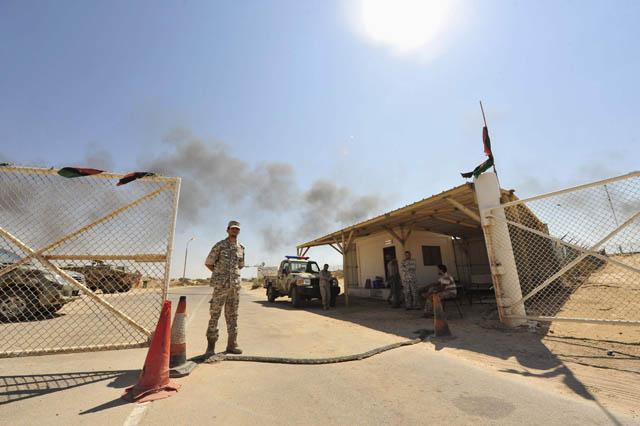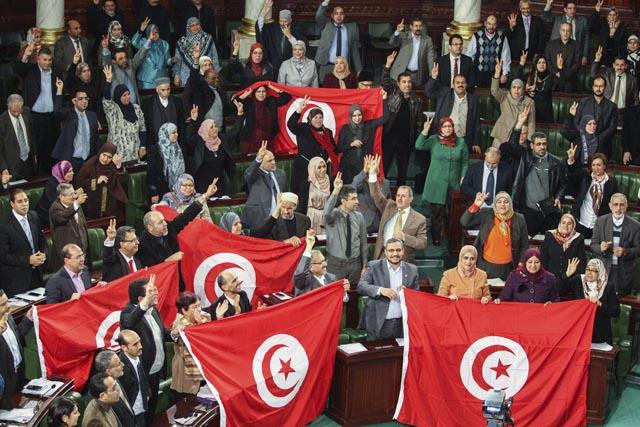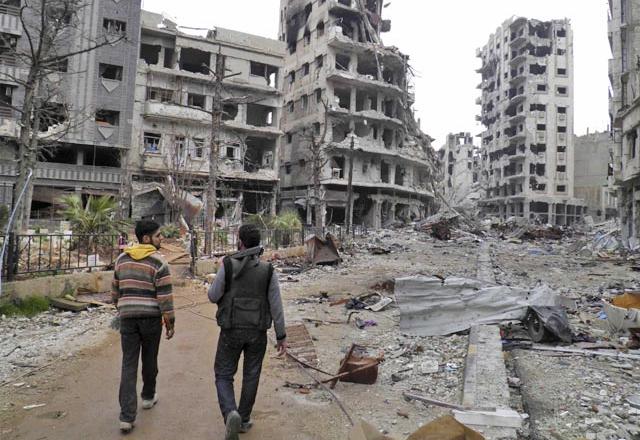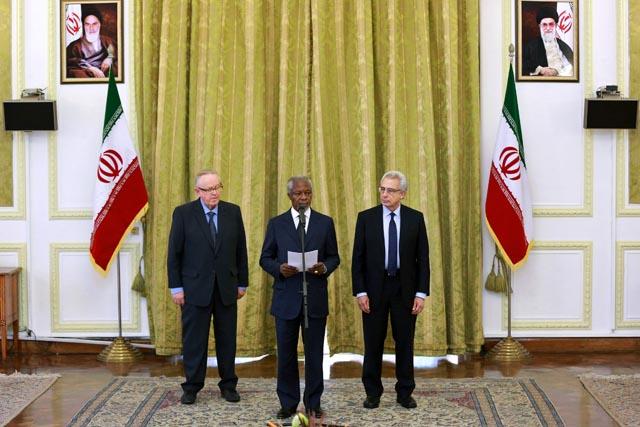AJDABIYA, Libya — A deal to lift an armed blockade of Libyan oil ports and restart exports could be possible within two weeks after talks with the government advanced on key demands, a senior leader of the protest movement said.
The group, led by a former rebel who once battled leader Muammar Qadhafi, seized three major eastern ports in summer to demand a greater share of oil wealth and more regional autonomy, choking off 600,000 barrels per day of oil exports.
Prime Minister Ali Zeidan’s government in Tripoli has been trying to reopen the ports as it faces a budget crunch that risks deepening unrest in the OPEC producer. Oil exports, Libya’s lifeline, have more than halved since summer.
Deputies from the General National Congress (GNC) parliament and tribal leaders have tried mediate to end the port seizures, but so far government and federalists led by Al Ibrahim Jathran have engaged only in a war of words.
But Abb-Rabbo Al Barassi, prime minister of the self-declared eastern region government, told Reuters that Tripoli and his federalist movement are closing the gap, and a deal to resolve the standoff of oil ports could be weeks away.
“I see progress with the state, the government, the General National Congress (GNC) assembly,” he said in an interview in the group’s base in Ajdabiya town. “I think it won’t take longer than two weeks to reach a deal, God willing. Maybe even less than that.”
Oil markets have been sceptical of such announcements in the past as militias and tribesmen wrangling for power in the post-Qadhafi era reach deals which often fall apart. Talks with Jathran’s group to reopen the seized Ras Lanuf, Es-Sider and Zueitina ports failed at the last minute in December.
But Barassi, a former army colonel, said Zeidan’s and GNC head Nuri Ali Abu Sahmain had noticeably softened their stance towards his group.
“We are optimistic. Even Mr Ali Zeidan’s comments are not as sharp as they used to be. Also Nuri Sahmain is also not so tough anymore in his language,” he said. “There’s no threat of using force, but a will to talk.”
Barassi spoke in the reception room of his new home reachable only along a pot-holed dirt track. A pro-Jathran television station blared in the background as assistants and relatives served coffee and oranges.
Dragging into its six-month, Libya’s oil standoff has often appeared like a war of attrition, with Zeidan and Jathran exchange warnings.
But Barassi also appeared to take a softer tone than previous federalist statements.
“We are not enemies. We don’t deal with the government and the GNC as enemies. We may have different views, on how to work...but we haven’t used force.”
Three demands
The federalists, who command thousands of former state oil security guards, have made three demands to reopen the ports.
They include Tripoli investigating oil corruption and selling oil under supervision of the three Libyan regions from pre-Qadhafi times — Cyrenaica in the east, Tripolitania in the west and southern Fezzan.
“The latest talk [from the government] is that there are no problems with the first two demands,” he said. Zeidan, who calls Jathran’s group illegal, has said it was willing to investigate oil corruption.
Barassi said the third demand calling for oil sales to be shared among the three regions based on a law from the pre-Qadhafi-era was difficult for Zeidan because accepting would mean recognising the idea of a federal state.
Jathran and others in the east are campaigning for federal structure, which was in place before Qadhafi came to power. Officials in Tripoli fear this could lead to secession.
Barassi said his group was trying to address Zeidan’s concerns over the third demand.
“We are in dialogue with them and we can readjust it,” he said. He declined to elaborate, saying only that the group expected within two days to receive a response from Tripoli to an adjusted proposal.
Little to do
Barassi insisted that the group might try selling oil on its own should talks fail but said it had decided for now not to sign anything and wait for the outcome of the talks.
“We want to sell oil the right way,” he said. “We talked to firms who signed deals with the state before and we spoke with new ones to get contracts.”
“But we told them to wait until there is an agreement with the government so there is a contract with the state in a complete way,” he said, declining to give names.
He said some potential buyers were concerned about safe passage to the seized ports. The Libyan navy earlier this month said it had opened fire on a Malta-flagged tanker trying to reach es-Sider port to load oil.
“Some firms are fearful,” the federalist leader said.
Originally from the eastern town of Beida, Barassi runs the self-declared government from a temporary base in Ajdabiya. But he said there was little to do for his 23-strong Cabinet including ministers for industry, health and education.
“It’s right that we don’t have work. We wait for oil exports or a budget,” he said.
The group has also founded the Libya Oil and Gas Corp to sell oil when it can. Barassi said the firm consisted of former staff from state National Oil Corp (NOC) based in ports who are sympathetic to federalists — a claim denied by Tripoli.
Based in nearby Brega, the federalist oil company appears less impressive than the colourful letterheaded statements it recently sent to oil markets suggesting it could offer tankers safe passage to the ports.
“We’ve only appointed a director for the firm,” he said.

























